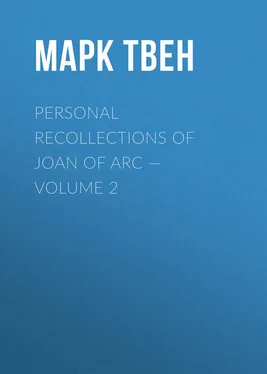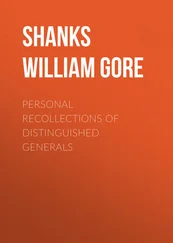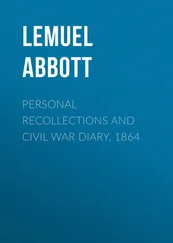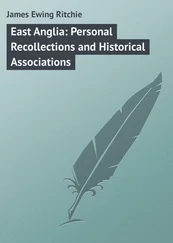Марк Твен - Personal Recollections of Joan of Arc — Volume 2
Здесь есть возможность читать онлайн «Марк Твен - Personal Recollections of Joan of Arc — Volume 2» — ознакомительный отрывок электронной книги совершенно бесплатно, а после прочтения отрывка купить полную версию. В некоторых случаях можно слушать аудио, скачать через торрент в формате fb2 и присутствует краткое содержание. Жанр: foreign_antique, foreign_prose, на английском языке. Описание произведения, (предисловие) а так же отзывы посетителей доступны на портале библиотеки ЛибКат.
- Название:Personal Recollections of Joan of Arc — Volume 2
- Автор:
- Жанр:
- Год:неизвестен
- ISBN:нет данных
- Рейтинг книги:4 / 5. Голосов: 1
-
Избранное:Добавить в избранное
- Отзывы:
-
Ваша оценка:
- 80
- 1
- 2
- 3
- 4
- 5
Personal Recollections of Joan of Arc — Volume 2: краткое содержание, описание и аннотация
Предлагаем к чтению аннотацию, описание, краткое содержание или предисловие (зависит от того, что написал сам автор книги «Personal Recollections of Joan of Arc — Volume 2»). Если вы не нашли необходимую информацию о книге — напишите в комментариях, мы постараемся отыскать её.
Personal Recollections of Joan of Arc — Volume 2 — читать онлайн ознакомительный отрывок
Ниже представлен текст книги, разбитый по страницам. Система сохранения места последней прочитанной страницы, позволяет с удобством читать онлайн бесплатно книгу «Personal Recollections of Joan of Arc — Volume 2», без необходимости каждый раз заново искать на чём Вы остановились. Поставьте закладку, и сможете в любой момент перейти на страницу, на которой закончили чтение.
Интервал:
Закладка:
Mark Twain
Personal Recollections of Joan of Arc — Volume 2
BOOK II — IN COURT AND CAMP (Continued)
28 Joan Foretells Her Doom
THE TROOPS must have a rest. Two days would be allowed for this. The morning of the 14th I was writing from Joan’s dictation in a small room which she sometimes used as a private office when she wanted to get away from officials and their interruptions. Catherine Boucher came in and sat down and said:
“Joan, dear, I want you to talk to me.”
“Indeed, I am not sorry for that, but glad. What is in your mind?”
“This. I scarcely slept last night, for thinking of the dangers you are running. The Paladin told me how you made the duke stand out of the way when the cannon-balls were flying all about, and so saved his life.”
“Well, that was right, wasn’t it?”
“Right? Yes; but you stayed there yourself. Why will you do like that? It seems such a wanton risk.”
“Oh, no, it was not so. I was not in any danger.”
“How can you say that, Joan, with those deadly things flying all about you?”
Joan laughed, and tried to turn the subject, but Catherine persisted. She said:
“It was horribly dangerous, and it could not be necessary to stay in such a place. And you led an assault again. Joan, it is tempting Providence. I want you to make me a promise. I want you to promise me that you will let others lead the assaults, if there must be assaults, and that you will take better care of yourself in those dreadful battles. Will you?”
But Joan fought away from the promise and did not give it. Catherine sat troubled and discontented awhile, then she said:
“Joan, are you going to be a soldier always? These wars are so long — so long. They last forever and ever and ever.”
There was a glad flash in Joan’s eye as she cried:
“This campaign will do all the really hard work that is in front of it in the next four days. The rest of it will be gentler — oh, far less bloody. Yes, in four days France will gather another trophy like the redemption of Orleans and make her second long step toward freedom!”
Catherine started (and so did I); then she gazed long at Joan like one in a trance, murmuring “four days — four days,” as if to herself and unconsciously. Finally she asked, in a low voice that had something of awe in it:
“Joan, tell me — how is it that you know that? For you do know it, I think.”
“Yes,” said Joan, dreamily, “I know — I know. I shall strike — and strike again. And before the fourth day is finished I shall strike yet again.” She became silent. We sat wondering and still. This was for a whole minute, she looking at the floor and her lips moving but uttering nothing. Then came these words, but hardly audible: “And in a thousand years the English power in France will not rise up from that blow.”
It made my flesh creep. It was uncanny. She was in a trance again — I could see it — just as she was that day in the pastures of Domremy when she prophesied about us boys in the war and afterward did not know that she had done it. She was not conscious now; but Catherine did not know that, and so she said, in a happy voice:
“Oh, I believe it, I believe it, and I am so glad! Then you will come back and bide with us all your life long, and we will love you so, and honor you!”
A scarcely perceptible spasm flitted across Joan’s face, and the dreamy voice muttered:
“Before two years are sped I shall die a cruel death!”
I sprang forward with a warning hand up. That is why Catherine did not scream. She was going to do that — I saw it plainly. Then I whispered her to slip out of the place, and say nothing of what had happened. I said Joan was asleep — asleep and dreaming. Catherine whispered back, and said:
“Oh, I am so grateful that it is only a dream! It sounded like prophecy.” And she was gone.
Like prophecy! I knew it was prophecy; and I sat down crying, as knowing we should lose her. Soon she started, shivering slightly, and came to herself, and looked around and saw me crying there, and jumped out of her chair and ran to me all in a whirl of sympathy and compassion, and put her hand on my head, and said:
“My poor boy! What is it? Look up and tell me.”
I had to tell her a lie; I grieved to do it, but there was no other way. I picked up an old letter from my table, written by Heaven knows who, about some matter Heaven knows what, and told her I had just gotten it from Pere Fronte, and that in it it said the children’s Fairy Tree had been chopped down by some miscreant or other, and — I got no further. She snatched the letter from my hand and searched it up and down and all over, turning it this way and that, and sobbing great sobs, and the tears flowing down her cheeks, and ejaculating all the time, “Oh, cruel, cruel! how could any be so heartless? Ah, poor Arbre Fee de Bourlemont gone — and we children loved it so! Show me the place where it says it!”
And I, still lying, showed her the pretended fatal words on the pretended fatal page, and she gazed at them through her tears, and said she could see herself that they were hateful, ugly words — they “had the very look of it.”
Then we heard a strong voice down the corridor announcing:
“His majesty’s messenger — with despatches for her Excellency the Commander-in-Chief of the Armies of France!”
29 Fierce Talbot Reconsiders
I KNEW she had seen the wisdom of the Tree. But when? I could not know. Doubtless before she had lately told the King to use her, for that she had but one year left to work in. It had not occurred to me at the time, but the conviction came upon me now that at that time she had already seen the Tree. It had brought her a welcome message; that was plain, otherwise she could not have been so joyous and light-hearted as she had been these latter days. The death-warning had nothing dismal about it for her; no, it was remission of exile, it was leave to come home.
Yes, she had seen the Tree. No one had taken the prophecy to heart which she made to the King; and for a good reason, no doubt; no one wanted to take it to heart; all wanted to banish it away and forget it. And all had succeeded, and would go on to the end placid and comfortable. All but me alone. I must carry my awful secret without any to help me. A heavy load, a bitter burden; and would cost me a daily heartbreak. She was to die; and so soon. I had never dreamed of that. How could I, and she so strong and fresh and young, and every day earning a new right to a peaceful and honored old age? For at that time I thought old age valuable. I do not know why, but I thought so. All young people think it, I believe, they being ignorant and full of superstitions. She had seen the Tree. All that miserable night those ancient verses went floating back and forth through my brain:
And when, in exile wand’ring, we
Shall fainting yearn for glimpse of thee,
Oh, rise upon our sight!
But at dawn the bugles and the drums burst through the dreamy hush of the morning, and it was turn out all! mount and ride. For there was red work to be done.
We marched to Meung without halting. There we carried the bridge by assault, and left a force to hold it, the rest of the army marching away next morning toward Beaugency, where the lion Talbot, the terror of the French, was in command. When we arrived at that place, the English retired into the castle and we sat down in the abandoned town.
Talbot was not at the moment present in person, for he had gone away to watch for and welcome Fastolfe and his reinforcement of five thousand men.
Joan placed her batteries and bombarded the castle till night. Then some news came: Richemont, Constable of France, this long time in disgrace with the King, largely because of the evil machinations of La Tremouille and his party, was approaching with a large body of men to offer his services to Joan — and very much she needed them, now that Fastolfe was so close by. Richemont had wanted to join us before, when we first marched on Orleans; but the foolish King, slave of those paltry advisers of his, warned him to keep his distance and refused all reconciliation with him.
Читать дальшеИнтервал:
Закладка:
Похожие книги на «Personal Recollections of Joan of Arc — Volume 2»
Представляем Вашему вниманию похожие книги на «Personal Recollections of Joan of Arc — Volume 2» списком для выбора. Мы отобрали схожую по названию и смыслу литературу в надежде предоставить читателям больше вариантов отыскать новые, интересные, ещё непрочитанные произведения.
Обсуждение, отзывы о книге «Personal Recollections of Joan of Arc — Volume 2» и просто собственные мнения читателей. Оставьте ваши комментарии, напишите, что Вы думаете о произведении, его смысле или главных героях. Укажите что конкретно понравилось, а что нет, и почему Вы так считаете.









